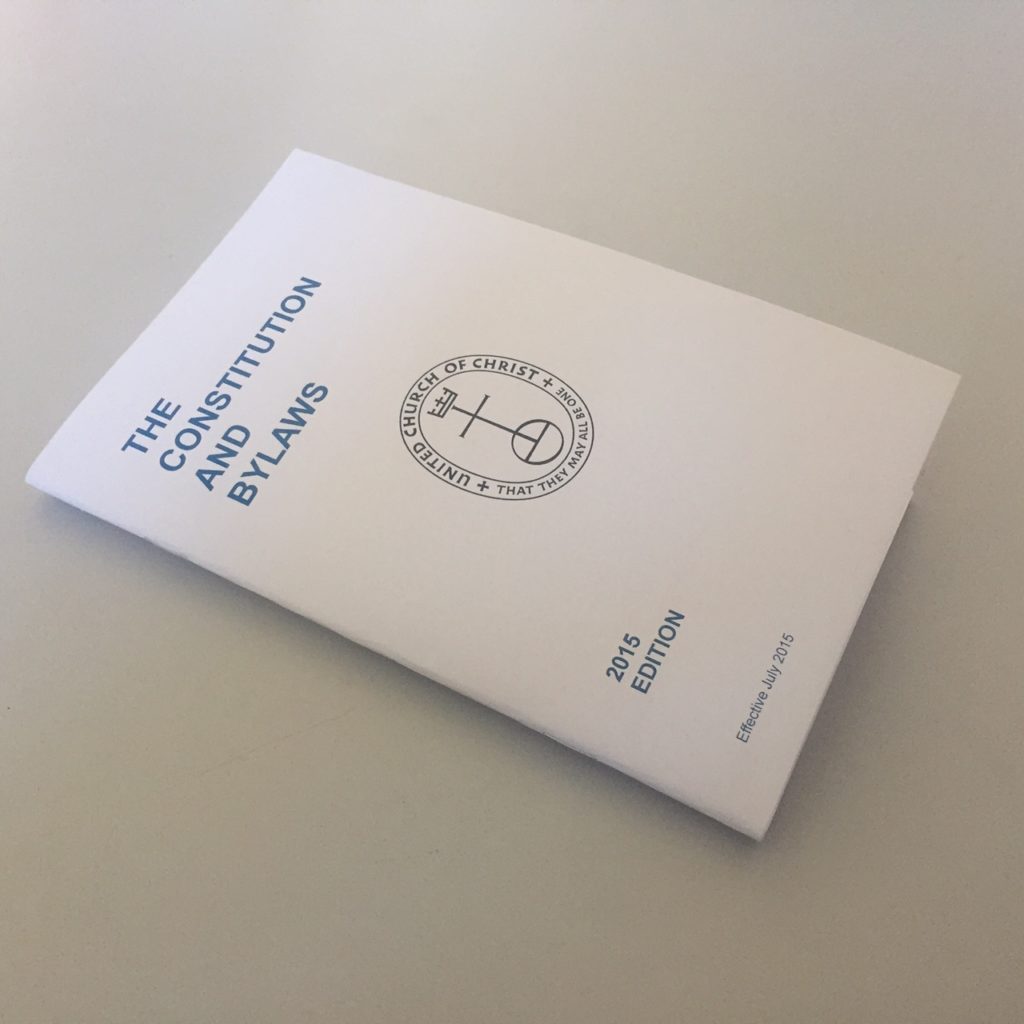General Synod to once again address constitution and bylaw changes
After two years of conversations, the Board of Directors of the United Church of Christ will bring a new set of proposed amendments to the UCC Constitution and Bylaws that would alter the structure of the leadership of the denomination. Those amendments are designed to give the national setting of the church more flexibility to be more collaborative and responsive to shifts across the religious landscape, and to clearly define the roles and responsibilities of the UCC’s elected leaders.
Those proposed amendments will be decided on by the 31st General Synod in Baltimore (June 30 through July 4).
“The proposed amendments take into account the feedback gathered and reflect a great deal of generative work and negotiation taken by the board since 2015,” said Geoff Brace, chair of the UCC Board’s Governance Committee, which drafted the proposed changes that were then approved by the full board in December. “The board believes this feedback, coupled with our understanding of changes to live into purpose, mission and vision will allow the national setting to operate with increased flexibility and dexterity.”
Two years ago, a previous set of proposals achieved a majority vote, but failed to gain two-thirds approval from delegates during General Synod 2015. Following two years of reviewing the UCC Constitution and Bylaws and discussing those changes that weren’t adopted, the board has put its full support behind the upcoming proposals. Board members engaged in discussions with their colleagues, conversations with conference ministers and gathered information from denomination-wide surveys.
“It has been a lengthy process, but considering the role of the constitution and bylaws in the life of our church, it was an important process,” Brace said. “We believe the proposed changes will help national setting to meet the mission, vision and purpose of the United Church of Christ.”
Under this new set of amendments, the leadership of the national setting would rest with a general minister and president, who is called by General Synod; associate general ministers would also be called by General Synod, and their scope of work would be determined by the general minister and president, with input from the board of directors. The associate general ministers would not be specifically designated to one of the three covenanted ministries (Local Church Ministries, Wider Church Ministries, and Justice and Witness Ministries).
The constitution and bylaws proposals will be packaged into three separate votes. The first package relates to the communion with the United Church of Canada that began in 2015, to amend the language that reflects that relationship. The second package, on ordained ministry and ecclesiastic oversight, contains changes that are mostly editorial in nature. There are some changes to terminology, and include the use of gender-neutral language. The third package relates to the changes to the national leadership, and the makeup and number of people on the Board of Director’s Executive Council, expanding from 12 to 16 members to be reflective of the UCC’s diversity commitments.
“The constitution and bylaws cannot change without the approval of the General Synod. We saw fit to write that into our governing documents. They put into place the values of covenant and autonomy that we cherish,” Brace said.
Should the proposals to the constitution pass, then two-thirds of the conferences of the UCC would need to approve them before they take effect.
Anyone interested in learning more from Brace, or having him address a group of delegates is welcome to email him at gsbrace@hotmail.com.
Related News
A Prophetic Call for Justice and Peace in Palestine
The executive leaders of the United Church of Christ have issued the following statement...
Read More‘Love is Greater Than Fear’: Regional Youth Events get to the heart of gospel message
United Church of Christ teens attending this summer’s Regional Youth Events (RYE) are...
Read MoreUCC desk calendars available to order now
Prepare for your day, month and year with the United Church of Christ desk calendar —...
Read More


